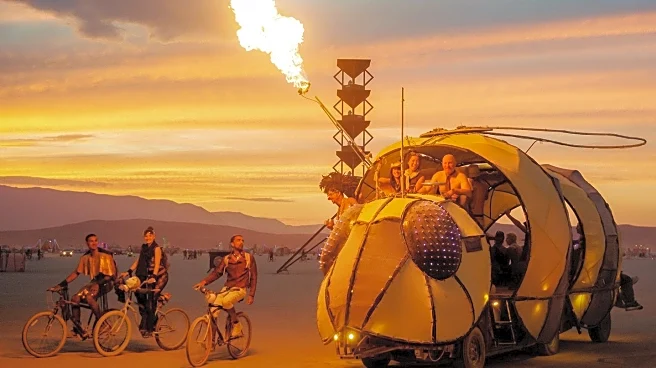What's Happening?
A first-time attendee of Burning Man has shared insights that challenge common misconceptions about the event. Despite its reputation as a gathering for the wealthy and famous, the attendee highlights that the majority of participants are everyday people, including engineers, lawyers, hairdressers, and bartenders. The event, held annually in Black Rock City, Nevada, is built on principles of community and self-reliance, with many camps focusing on creating gifts that benefit all attendees. The narrative counters the belief that Burning Man is predominantly a playground for billionaires and celebrities, emphasizing the dedication and hard work of its diverse participants.
Why It's Important?
This perspective is significant as it sheds light on the true nature of Burning Man, which is often overshadowed by media portrayals focusing on its more affluent attendees. By highlighting the contributions of ordinary participants, the narrative reinforces the event's foundational principles of community and self-reliance. This understanding can influence public perception, potentially attracting a broader range of attendees who are interested in the event's core values rather than its celebrity allure. It also underscores the importance of community-driven initiatives in creating a unique cultural experience.
What's Next?
As misconceptions about Burning Man are addressed, it is likely that the event will continue to evolve, potentially attracting a more diverse group of participants. The focus on community and self-reliance may inspire similar events to adopt these principles, fostering a culture of inclusivity and collaboration. Additionally, the narrative may encourage current and future attendees to engage more deeply with the event's values, contributing to its ongoing transformation and sustainability.
Beyond the Headlines
The insights provided by the first-time attendee highlight the ethical and cultural dimensions of Burning Man, emphasizing the importance of community over individualism. This perspective may lead to a reevaluation of how such events are perceived and reported, encouraging a more nuanced understanding of their impact on society. The emphasis on gifting and collaboration could also inspire broader societal shifts towards more community-oriented practices.










